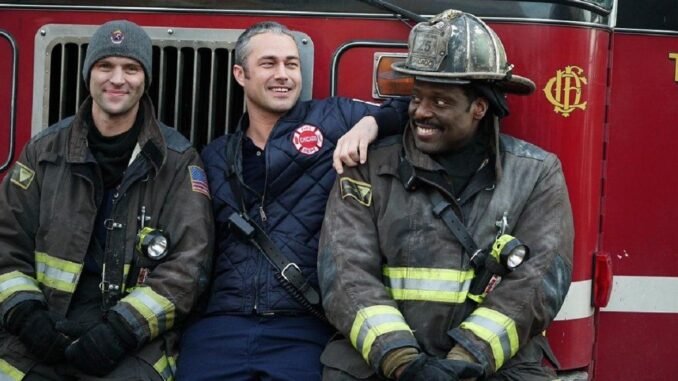
The siren's wail is the signature tune of "Chicago Fire," a visceral, heart-pounding symphony of courage and crisis that has long defined its narrative. For years, the show has tethered its audience to the palpable heat of burning buildings, the frantic rhythm of rescue, and the unyielding camaraderie of Firehouse 51. Its drama has been forged in the crucible of literal flames, reflecting the immediate, life-or-death stakes faced by firefighters and paramedics. But the city of Chicago itself is a volatile landscape, and sometimes the most dangerous fires are not those visible from the street, but those smoldering in the corridors of power. The announcement that Annabeth Gish is joining the cast as the Mayor’s Chief of Staff signals not just a new face, but a profound thematic expansion, promising to ignite a different kind of blaze within the show's well-established framework.
Annabeth Gish arrives with a well-honed gravitas, a resume studded with characters who operate in the grey areas where intellect and ambition collide. From her enigmatic roles in The X-Files to her nuanced portrayal of political operatives in The West Wing, Gish possesses a unique ability to convey power that is less about brute force and more about strategic cunning, quiet authority, and an unshakeable resolve. This is precisely the kind of presence a Mayor's Chief of Staff demands. This isn't a character who will be donning a turnout coat or wielding a hose; her battleground is the legislative chamber, the press briefing, the closed-door meeting. Her weapon is information, her shield is policy, and her ultimate goal is the Mayor's agenda – and, by extension, the city's complex, often contradictory, interests.
The Mayor’s Chief of Staff is the engine room of city hall, the gatekeeper, the chief strategist, and often, the most influential advisor behind the scenes. This role is a narrative goldmine for "Chicago Fire." Up until now, the bureaucracy has largely been an external force, an occasional antagonist in the form of a stingy budget committee or a meddling commissioner. With Gish's character at the heart of this political machinery, the show can delve into the intricate dance between public service and political expediency. How does a firehouse’s operational needs butt up against city-wide budget cuts? What happens when a heroic rescue effort unintentionally exposes a political scandal? How does the city’s image, meticulously crafted by the Chief of Staff, clash with the raw, often messy reality on the ground?
This new dynamic introduces a fascinating friction. The firefighters of Firehouse 51 embody a clear, unambiguous code of heroism: run into danger, save lives, no questions asked. Their fires are physical, their solutions often immediate. But the political fires Gish's character will navigate are far more insidious, slow-burning, and require a different kind of heroism – one of strategic maneuvering, compromise, and moral ambiguity. She will be tasked with containing public outrage, extinguishing budget deficits, and igniting public support for policies that may or may not align with the boots-on-the-ground reality of first responders.
The very title, "Chicago Fire," takes on new layers of meaning with this casting. No longer solely about literal conflagrations, the show is poised to explore the political fires that threaten to engulf a major metropolis: corruption, public trust issues, systemic inequalities, and the delicate balance between public safety and financial prudence. Annabeth Gish’s Chief of Staff will be the formidable figure standing at the intersection of these forces, perhaps acting as an unlikely ally to Chief Boden, or a shrewd, calculated adversary. Her decisions, whispered in confidence to the Mayor, will have ripple effects that could directly impact the resources, personnel, and even the very existence of Firehouse 51.
In essence, Annabeth Gish’s arrival is more than just a casting announcement; it's a statement of narrative intent. "Chicago Fire" is maturing, expanding its scope beyond the immediate inferno to encompass the complex, often unseen, political heat generated by a city striving to function. She is set to add a dimension of intellectual and strategic combat, providing a potent contrast to the physical bravery we’ve come to expect. Her character promises to be a catalyst, stirring the pot of city politics and igniting new conflicts that will challenge Firehouse 51 in ways no burning building ever could, reminding us that sometimes, the most dangerous fire is not that which consumes, but that which corrupts.
